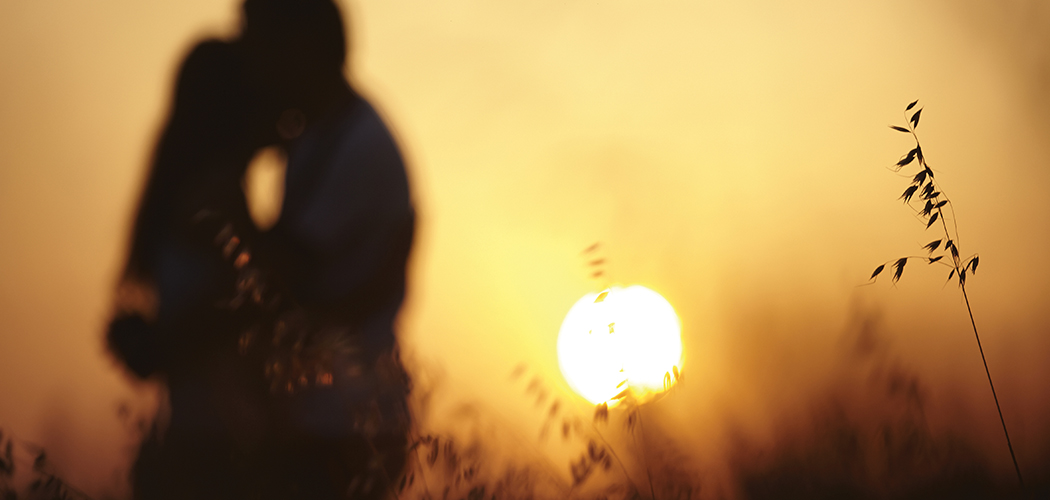[title subtitle=”words: Marla Cantrell”][/title]
In the summer of my twenty-second year, just as the corn and tomatoes were coming to life, a man found his way to me. He was driving a gold and brown Ford LTD. He was wearing polyester pants the color of carrots. He was listening to music that rang from his stereo, louder than any alarm in town.
All I knew at that time was that he was an intruder, and that I was not dressed for company. I had on overalls with a t-shirt underneath, and work boots, grimy from a long day’s work. My hair was a tumble of blond curls pinned loosely on top of my head. I smelled like sweat and new-mown grass.
He was selling leather-bound classics: Ulysses, Moby Dick, Elizabeth Barrett Browning’s Sonnets from the Portuguese. He carried Ulysses under his arm. The volume had seen better days. I doubted he had access to an entire set, even if I had given him the check he wanted, and he didn’t seem to be a reader, or at least he never quoted a passage to me. I let him sit on my porch, but I kept my hoe in my hand, a warning sharp as a snake’s tongue, in case he got any ideas. He asked after my husband and I laughed. I intended never to marry, but how could he know that? It was 1972, and most women over eighteen had walked the aisle by then. I could see his response, that moment of surprise when he looked around, admiring the place, I believe. It was a fine property. A two-story house, forty-four acres. A red barn. Holstein cattle in the field.
“Yes,” I said. “It’s all mine,” although he hadn’t actually asked.
“I live in my car,” he said, and pointed to the LTD. “Before that, I lived in Ybor City in Florida.”
He didn’t have the manners of a traveling salesman, which is to say he wasn’t especially charming, or quick, or fast-talking. He was twenty-seven, I learned later, a veteran of the Vietnam War, and he had the look of someone lost, or maybe of someone not wanting to be found. He had a scar that ran around his right thumb. He had shaggy, barely brown hair that he kept pushing behind his ears. He looked a lot like Robert Redford, whose movies I adored.
“I’ve never lived anywhere but here in Judsonia,” I said. “My parents,” I said, and then stopped. I didn’t talk about them with outsiders. They’d trekked to the Alaskan wilderness and decided to disappear. I was supposed to go with them, but I’d gotten a summer job at Bennie’s Eating Emporium the year I graduated high school, and waved them off when they said they might not come back. They sent back one letter. One! In it, they gave me the farm.
His name was Winston Shockley. He’d never been to Arkansas before. He smiled when I asked him why, and then he sang a line from “Never Been to Spain,” a Three Dog Night hit that was all the rage. He’d been to Oklahoma, he sang, and for some reason I laughed. His voice was a perfect baritone. He had little gold hairs on his arms. His eyes were the blue of heaven.
I put him up in the barn that night. It was foolhardy and I knew it. Getting undressed for bed, I felt embarrassed, even though there were walls between us, curtains, doors, a quarter acre, a barn door solid as the night.
The next morning, I walked to the barn and knocked tentatively. I invited him to eat with me. His hands swallowed the coffee mug. I liked his elbows on the table, his eyes scanning the newspaper, his eyes scanning me when he thought I was busy at the stove.
A truckload of day workers showed up, mostly high school kids from town, a few old men who’d worked for my parents. I directed them to the cornfield and put Charlie, the oldest of the men, in charge. He scratched his head and said, “You feeling poorly, Miss Emmaline?” I never missed work. I assured him all was well, and turned back to the house, to Winston, who was still at the kitchen table.
We spent most of the day at Monroe Lake. He could float on his back for a solid hour; I’d never seen anything like it. He could read while he did it, and showed me so, the front page of the local paper soggy by the time he finished. I sat in an inner tube and watched him, transfixed.
“You started to tell me about your parents yesterday,” he said, finally, when he’d grown tired of floating and began to tread water.
“Ah, well,” I said. “It’s not a good story for a summer day.”
“Well, I’m sorry, all the same. For whatever happened,” he said.
I opened my mouth but didn’t speak. He assumed they were dead. For all I knew they were. I paddled closer to him. “What are your parents like?”
“My mother is small and round and happy,” he said. “My father is tall and thin and angry.”
“What was the war like?”
He splashed water with the palm of his hand. “Not a story for a summer day,” he said. “Why aren’t you married?” he asked, without missing a beat.
“I don’t believe in marriage,” I said, as defiant as I could manage in the presence of a man I feared had the power to change my mind.
“Are you into free love?”
I laughed again. “Nothing on this green earth is free.” And then I said, “Why aren’t you married?”
“Not enough room in the LTD,” he said, and laughed again.
I might not have loved him if he’d left that day, but he did not. By the end of the week, he was working beside me in the fields. On Saturday, he drove to town, came back with a loaf of French bread, two bottles of Boone’s Farm, two steaks he grilled without wearing his shirt.
It was not as if I’d never been pursued by a man. I had. Sometimes I’d been caught. But I always found my way home again. With Winston, it was as if he was not in pursuit at all. He was easy, like breathing is easy. I dressed carefully that night, put on a yellow sundress, let my hair down, rubbed baby oil on my legs.
He found my dad’s old albums and put Etta James on the stereo. He poured cheap wine, and sat on the arm of my chair while we drank it. When “At Last” began to play, he pulled me to my feet and we danced in the living room while the last of the light streamed through the tall windows.
There is something solid in some men that makes a woman believe she can be soft. Winston had that. His arms around me felt like the rails of a fence that keeps every good thing safe. His chin on the top of my head felt like a promise. When he kissed me, well, you know the rest.
“I want you to know, Emmaline,” he said, “that I could get used to this.”
The next day we walked through the pear orchard my grandfather planted in the 1940s, and Winston despaired at the condition it was in. We drove to the county extension office, and the agent talked to us for an hour, telling us how to save the trees that were left, how to get the pears to produce again.
We worked the orchard together, and one day he asked for two hundred dollars for irrigation equipment. It rang false when he said it, and I thought for a minute that he was conning me, and I didn’t like the way that made me feel. I made some excuse, and he didn’t ask again. He carried water to the trees through all of July. In August, he stopped trying.
One September afternoon, just as the heat of summer was ratcheting down from hellfire-fury to simply unbearable, Winston began to drift. He spent an entire Sunday morning washing and waxing his LTD. He brought a map into the house and circled the state of Colorado. “Have you ever snow skied?” he asked, offhandedly, as if my answer didn’t matter. I thought of my mother and father, the winter and spring they spent bent over a map of Alaska. I thought about how snow blinds you, burns you, disorients you. “No,” I said.
Winston was so caught up tracing the red and blue lines with his finger that he didn’t seem to hear me. “Are you leaving?” I asked, and he told me he was, the very next morning.
The barn seemed as far away as the east is from the west that night. I paced across my bedroom floor, wondering what to do, wondering why I was so easy to leave. I believed then and I believe it still, that he expected me to go to him, to make things right, as I suppose most women would have done. But there was something in me that would not allow me to give a man the upper hand.
When he left, I was stoic. I sent along fried chicken, a jug of tea, peach cobbler. I imagined Winston turning around, a cloud of red dirt following him down my rutted road, but that did not happen, not that day or any other.
Last week, just as the sun was setting, a UPS truck pulled down the lane. I opened the door to see it, and my old dog, Bessie, stood beside me and howled. The young driver handed me a box that I took inside and opened slowly. There was no return address. Inside was a tattered copy of Ulysses, and a note from Winston, who is now a widower and a grandfather, and works part time at a Best Buy in Kansas.
I have read his note so many times, I could recite it to you now. There are days when I think he’s saying he loved me then and loves me still, and that he’s paving his way to return to me. There are days when I read it and think it’s a goodbye note, that he must be dying.
It is such a small token, so late in the game it shouldn’t matter. But time has a way of blurring the past until it looks like one of Monet’s fuzzy paintings. When I recite his letter aloud, I can summon up that time, the sun on my bare shoulders, Winston’s hand on the small of my back. I can see myself at twenty-two, as beautiful as I would ever be, my body almost perfect, and Etta James singing in the background, telling me my lonely days were finally, thankfully over, and I believed her, even if none of it was ever true.




